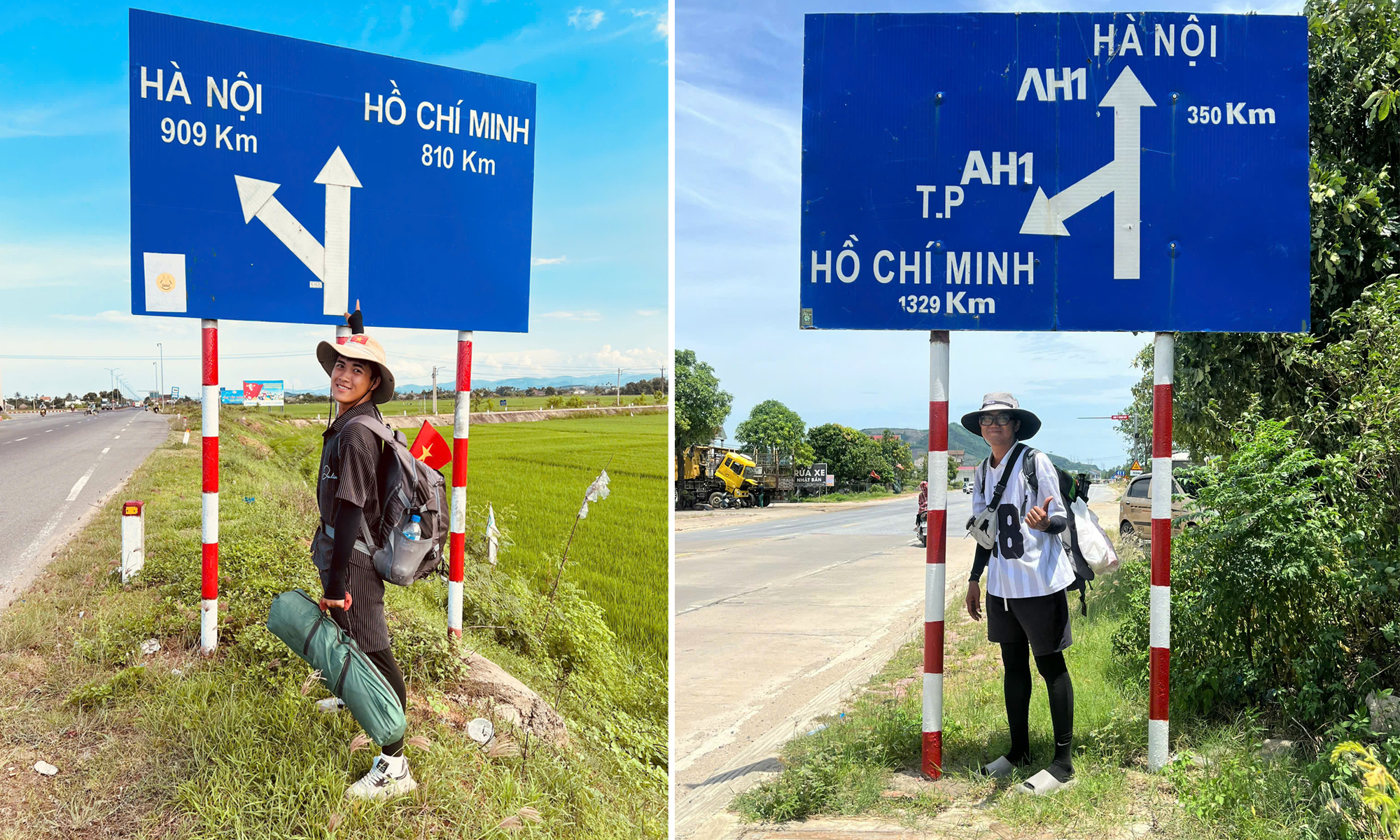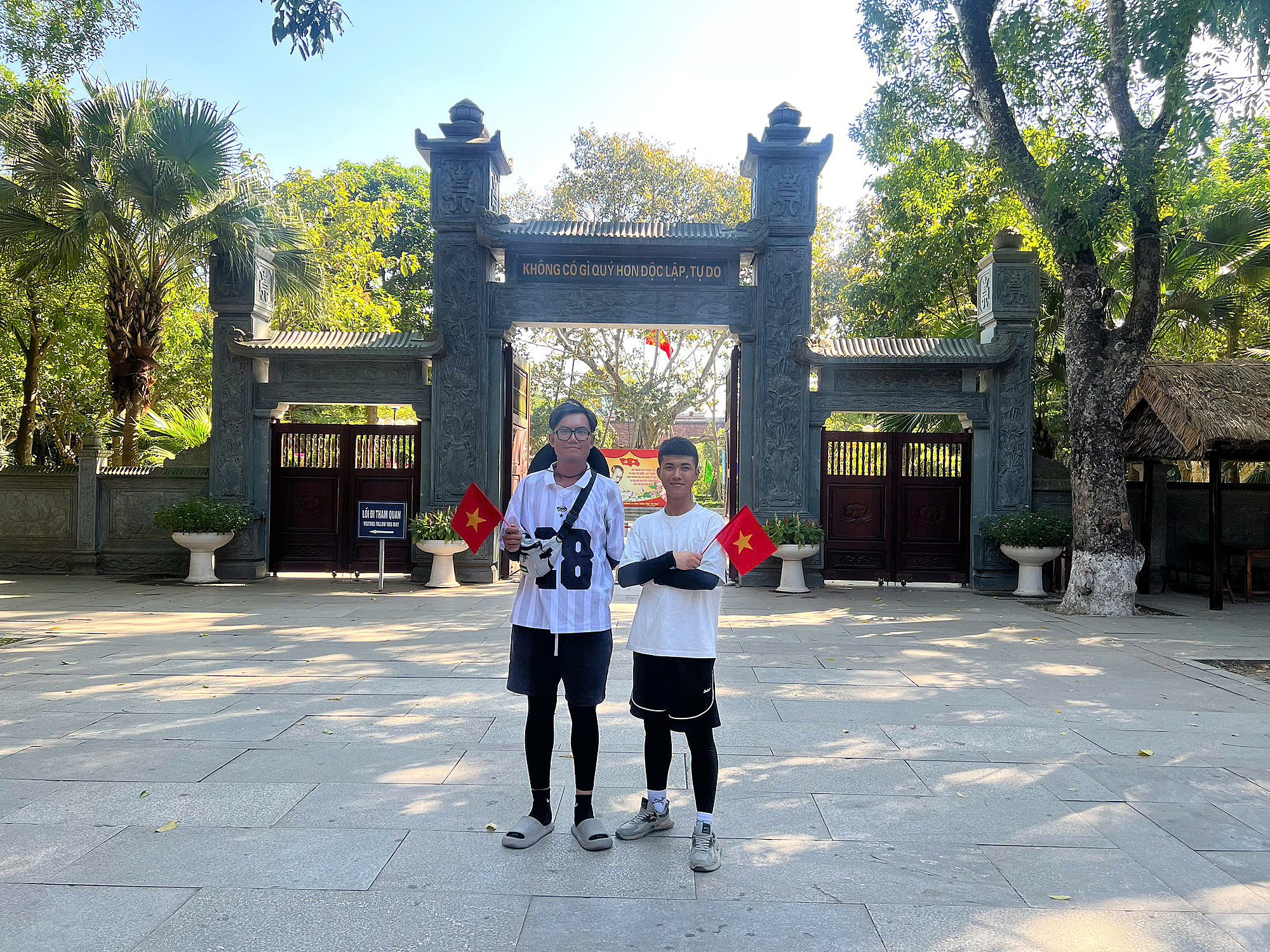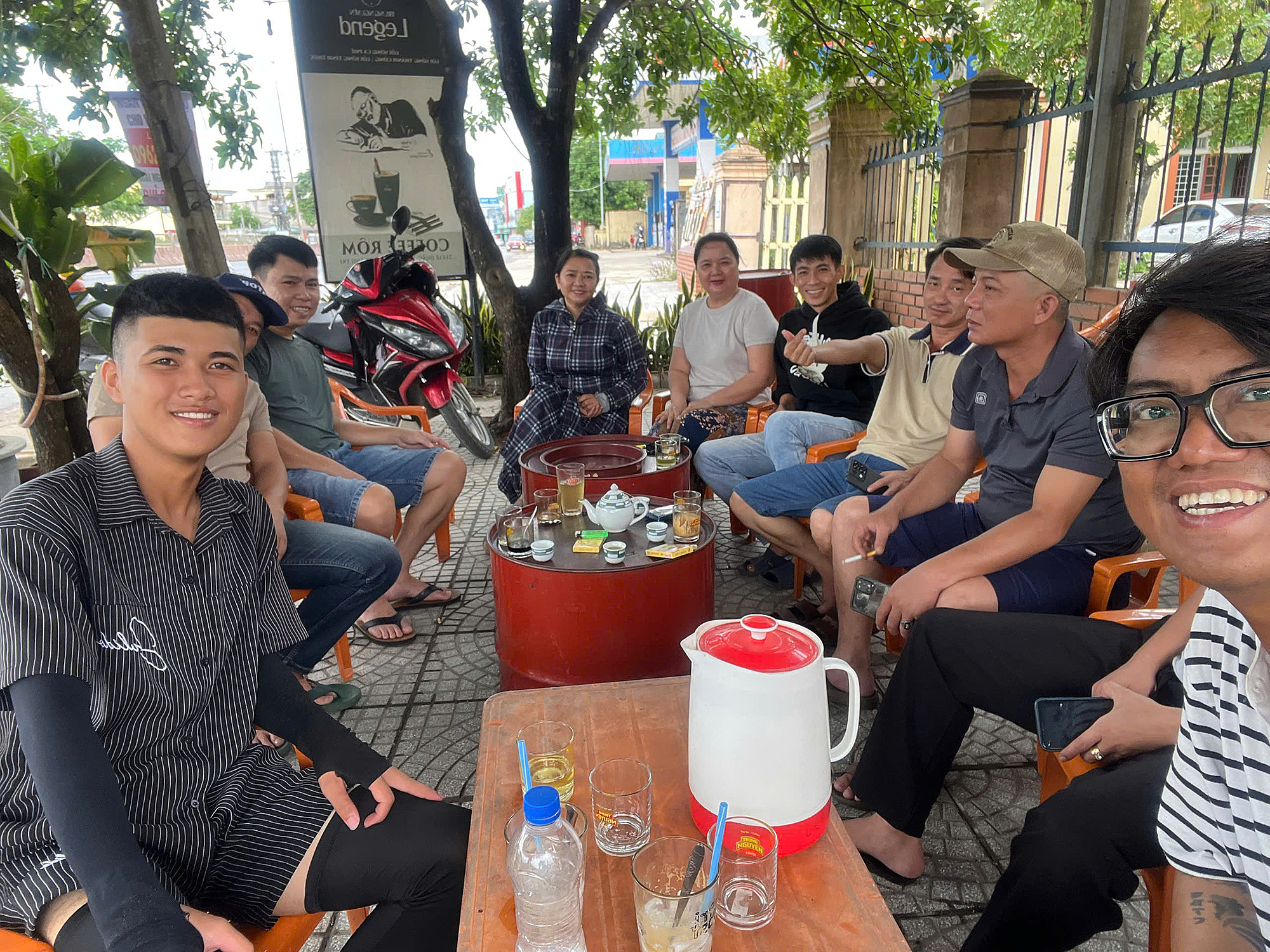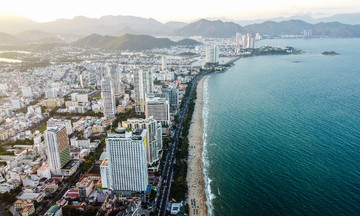Tu, 41, from Ho Chi Minh City, said the idea for this trip came to him after attending the parade commemorating the 50th anniversary of the country's reunification. The atmosphere of the event inspired him to undertake a meaningful journey for the 80th National Day celebration. "I wanted to walk to fully experience the country and its people," he said.
With no prior experience in long-distance walking, Tu knew he needed a companion for the more than 1,700 km journey, expected to last three months.
When he shared his plan, many friends called it "far-fetched." Others were interested but couldn't participate due to poor physical condition or family and work commitments.
Just when he thought he would have to embark on the journey alone, he received a call from Nguyen Xuan Duy, a 21-year-old student from Nam Dinh province, who wanted to join him. After a few discussions, Duy flew to Ho Chi Minh City to take on the challenge with Tu.
"I'm young and want to explore the country in my own way. I'm lucky to have met Tu, someone who shares the same aspiration," Duy said.
 |
Nguyen Xuan Duy (left) and Cao Le Tuan Tu on their cross-country walking journey, starting from Ho Chi Minh City on 5/6. Photo courtesy of the individuals |
Nguyen Xuan Duy (left) and Cao Le Tuan Tu on their cross-country walking journey, starting from Ho Chi Minh City on 5/6. Photo courtesy of the individuals
The pair spent a short time training. Their luggage consisted of two backpacks weighing about 10 kg, including clothes, personal belongings, medicine, raincoats, spare food, and a small tent in case they couldn't find accommodation. They are self-funding the trip.
On 5/6, with the red flag with a yellow star attached to their backpacks, they set off from Independence Palace, following National Highway 1A. "I chose June 5th, the day Uncle Ho left to find a way to save the country, as the starting point for my journey," Tu said.
The first few days were the most challenging. Their bodies were not accustomed to the high level of physical activity, and their feet quickly blistered and ached. Each day, they walked over 20 km in 10-12 hours, making the 10 kg backpacks feel like "mountains" on their shoulders. Every evening, Tu would search for affordable accommodation on apps.
"I've traveled to many places in the world, but this is the first time I've truly experienced such hardship," Tu said.
They faced the scorching heat of central Vietnam, sometimes reaching 40°C. The heat radiating from the asphalt roads made them exhausted, forcing them to take frequent breaks. Steep slopes drained their energy, leaving their calves stiff and backs sore. "It was tiring, but we never thought of giving up, only encouraging each other to keep going," Tu recounted.
After the first 20 days, their bodies gradually adapted. Instead of feeling weary, they began to find joy in each step. Their feet no longer ached, and their pace became steadier.
To maintain their progress, they set a goal of passing through a province or city (according to the old administrative divisions) every one to three days. Larger provinces like Khanh Hoa and Ha Tinh took up to six days. In each locality, they also visited martyrs' cemeteries and historical sites.
 |
Tuan Tu (left) and his companion Xuan Duy take a commemorative photo when they walked to Uncle Ho's hometown, Nghe An, in early 8/2025. Photo courtesy of the individuals |
Tuan Tu (left) and his companion Xuan Duy take a commemorative photo when they walked to Uncle Ho's hometown, Nghe An, in early 8/2025. Photo courtesy of the individuals
Throughout their journey, they received support from many people. Words of encouragement and inquiries from strangers gave them strength. Some offered bottles of water, others gave them boxed lunches, and even children waited for hours by the roadside to give them mangoes and avocados from their gardens.
The most memorable encounter for both of them was with a woman who collected scrap metal in Quang Tri province. Seeing the two sweating profusely, she thought they were in trouble, so she searched her pockets, intending to give them money.
"I kept explaining that we were walking across Vietnam, but perhaps she misheard it as 'looking for work' and felt sympathy for us. Before leaving, she even gave us her phone number, telling us to call if we needed food or a place to sleep, which brought us to tears," Tu shared.
 |
Tu and Duy are given water by locals during their walk from Ho Chi Minh City to Hanoi in 7/2025. Photo courtesy of the individuals |
Tu and Duy are given water by locals during their walk from Ho Chi Minh City to Hanoi in 7/2025. Photo courtesy of the individuals
On 11/8, Tu and Duy passed through Nam Dan district, Nghe An province. The remaining distance to Hanoi is about 270 km. They plan to arrive in the capital on 24/8 to participate in activities leading up to the parade.
But their journey doesn't end there. They plan to cycle back from Hanoi to Ho Chi Minh City, although they haven't set a specific date yet.
"It will be a thank-you trip. We will return to the places we've passed through to express our gratitude to the kind people who have fueled this journey," he said.
Looking back on the more than 1,500 km they have covered, both Tu and Duy acknowledge the hardships, but what they have received in return is even greater: human kindness and a deeper understanding of their country.
"Wherever I go, whatever I do, I'm always proud to be Vietnamese and will keep moving forward as long as I can," Tu affirmed.
Quynh Nguyen












